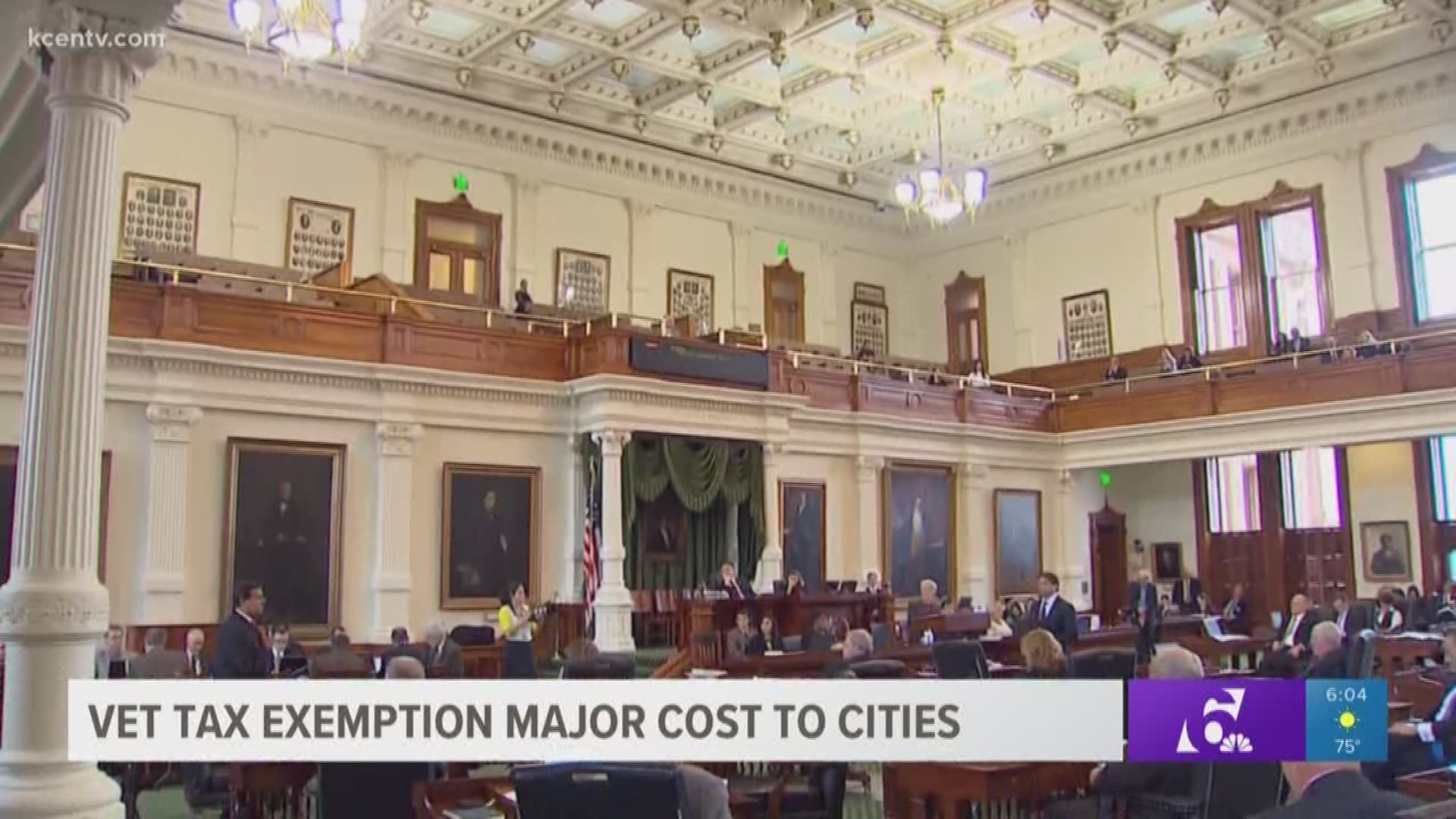CENTRAL TEXAS — Several Central Texas cities are losing millions of dollars due to a tax break for disabled veterans.
Texans voted in 2009 to approve a 100 percent property tax break for disabled veterans. This means veterans who became completely disabled while fighting for the country wouldn't pay property taxes.
The Texas legislature extended the break to surviving spouses in 2012, then it made the break retroactive for spouses in 2016 according to the city of Killeen.
Killeen spokesperson Hilary Shine said the break is great for soldiers that populate the area around Fort Hood, but it also means $707 million is off the tax rolls. Shine said the exemptions now cancel out 11.3 percent of the city's taxable base.
"To demonstrate how serious this is, there was $131 million of property value growth in the last year, $124 million of that was erased by new veteran's exemptions," Shine said. "We're not saying veterans are not deserving of this, not owed this. The issue we are dealing with is that this is disproportionally affecting cities like Killeen."
The city of Killeen is missing $5.3 million in property taxes out of its general fund, and Shine said it'll lose $6.5 million next year. Texas reimburses a small portion of that, but it won't even cover a quarter of the costs for a city like Killeen.
"Our goal in this is to have the state, that provided this benefit to veterans, to fund the benefit," Shine said.
Harker Heights is a smaller city also affected by the tax break for veterans. It's losing $1.6 million from the next budget and won't see a cent of reimbursement.
"We do not receive a dime," Harker Heights spokesperson Jerry Bark said. "We don't even get to file for reimbursement."
Bark said since Harker Heights doesn't touch Fort Hood, it doesn't count for getting a refund.
Shine said the city needs that money to provide city services to veterans and everyone else.
"The nice to haves, the libraries, those things that aren't essential services but serve a purpose to the community, those are the things that have to be looked at," Shine said.
Killeen representatives are asking legislators to refund the money at the state level.
"What it is doing is it is downgrading the quality of life through loss of services, loss of response, loss of quality of life amenities," Shine said. "So really what we are looking at is the active-duty soldier who will potentially be asked to pay more."
With the 2019 legislative session starting, local lawmakers are prepared to file new bills to help improve the situation. In fact, newly elected Texas representative Dr. Brad Buckley said he is filing a bill that makes Harker Heights eligible for funding.
"To go from the amount of funding they are receiving now to full reimbursement would always be a goal," Buckley said. "We would certainly start there, but we are looking to move the ball down the field."
Buckley said property taxes are the way governments are funded, and when the state of Texas makes that critical revenue off limits, the state needs to make the communities whole.
"It's a state-mandated, state-approved benefit, and it needs to be funded accordingly," Buckley said. "There is not a community in the country that is more pro-veteran than the greater Killeen area. Exemptions that folks propose where they want to honor and benefit those who served so heroically is a great benefit, but the state has to recognize that there is a cost to local communities and have to fund it accordingly."
Killeen has employed the The Schlueter Group, a lobbying firm, to pursue greater reimbursement.

